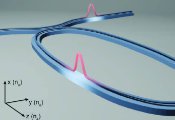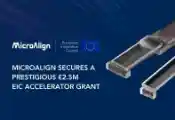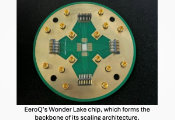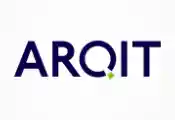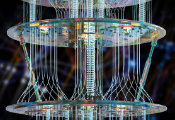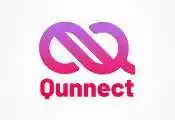Rigetti Computing Selected to Participate in DARPA’s Quantum Benchmarking Initiative
BERKELEY, Calif., April 03, 2025 -- Rigetti Computing, Inc. (“Rigetti” or the “Company”), a pioneer in full-stack quantum-classical computing, announced today that it was selected to participate in the Defense Advanced Research Projects Agency (DARPA) Quantum Benchmarking Initiative (QBI). The primary goal of QBI is to determine if any approach to quantum computing can achieve utility-scale operation by 2033. QBI will use a multi-stage approach, Stages A, B, and C, to assess the proposed concepts, with each stage representing an increased level of scrutiny. Rigetti will advance to Stage A, a 6-month performance period focused on the Company’s utility-scale quantum computer concept worth up to $1 million upon completion of program milestones.
Rigetti’s proposed concept to design and build a Utility-Scale Quantum Computer (USQC) combines the Company’s proprietary multi-chip architecture with scalable quantum error correction (QEC) codes. Rigetti’s long-time partner and leader in QEC technology, Riverlane, will be collaborating on this project and bringing their expertise to help refine the proposed USQC concept and validate the underlying technology.
DARPA defines a USQC as a system whose computational value exceeds its costs. The dominant factors in the scalability and speed of a USQC are the physical qubit architecture and QEC code. A common QEC technique is surface code, which is embedded onto square lattices of superconducting qubits and requires a significant number of physical qubits. Rigetti’s concept will leverage Quantum Low Density Parity Check (qLDPC) codes, which do not require as high of a physical qubit overhead, making them a more efficient QEC technique for scaling towards fault-tolerant systems.
“Rigetti has spent the last decade developing the IP and expertise needed to build and deliver high-performing quantum computers. The DARPA QBI sets out to prove a realistic path to quantum utility, which we believe we are well positioned to deliver,” says Dr. Subodh Kulkarni, Rigetti CEO. “The DARPA QBI program is closely aligned with Rigetti's technology roadmap, which includes building out our QEC capabilities and developing fault-tolerant architectures.”
Rigetti’s quantum computers are based on superconducting qubits, which are a leading modality due to their fast gate speeds and the ability to leverage well-established semiconductor manufacturing techniques. The Company has made several breakthroughs in the superconducting qubit industry that will be the backbone of its roadmap to higher qubit count systems. This includes a novel chip fabrication technique -- Alternating Bias Assisted Annealing (ABAA) -- that enables precise qubit frequency targeting, and innovative multi-chip architecture technology. In recent years Rigetti has deployed quantum systems that leverage vertical I/O, multiple layers of signal lines, and the ability to connect qubits on separate chips with high fidelity.
“Both the performance of our currently deployed 84-qubit Ankaa-3 system at 99.0% ISWAP gate fidelity, and our bold roadmap taking us to 100+ qubits with a 2x reduction in error rates along with qLDPC code puts us in a strong position to to meet DARPA’s 2033 target,” says David Rivas, Rigetti CTO.
Rigetti’s strategy to achieve a USQC focuses on implementing an efficiently-scaling qLDPC code in hardware. This will deliver the best of both worlds: the fastest quantum computing modality running the most efficient codes, natively. Rigetti plans to combine these technologies and manufacture quantum integrated circuits capable of natively running qLDPC codes, and reach the high qubit counts and performance metrics needed for utility-scale applications.


